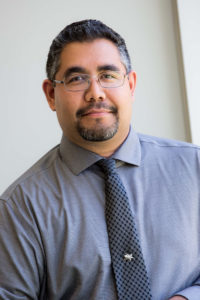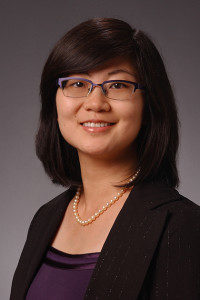Relieving the pain of peripheral arterial disease
By Jan Jarvis


For someone with peripheral arterial disease – a condition that causes narrowing of arteries in the limbs – pain is a big problem.
“The treatment for it is exercise,” said Eric Gonzales, PhD, Associate Professor in the Department of Medical Education in the TCU and UNTHSC School of Medicine, which is pending accreditation. “But you can’t exercise if you’re in extreme pain.”
Relief could be in a class of proteins that is found in virtually all cells in the body. In a study recently published in Nature Communications, Dr. Gonzales and Dr. Jin Liu, Assistant Professor of Pharmaceutical Sciences in the UNT System College of Pharmacy, examine acid-sensing ion channels (ASICs) and their role as mediators of pain, with the help of super computers.
“Their sole role is to sense changes in acidity,” Dr. Gonzales said.
As pH changes within the human body, ASICs sense these changes and convey signals that alter cellular responses. Additionally, calcium can modify how the ASIC3 protein responds to changes in acidity. In the recently published study, the team identified a single amino acid within the ASIC3 protein that is responsible for this calcium sensitivity.
The discovery could one day lead to new therapies that relieve pain, which would make it possible for people with peripheral arterial disease to exercise again.






Social media